A Protective Order (PFA) is a legal tool designed to protect an individual from harm or further threats, often arising from situations like domestic violence.
These orders are typically issued when someone is considered a credible threat due to abusive behavior or harassment. However, even a minor disagreement or a fleeting loss of temper can result in a PFA order being placed against you, particularly in situations involving a spouse or partner. Violating such an order can have severe consequences, including the possibility of jail time and a criminal record.
The violation of a Protective Order is treated as a serious criminal offense in Maine. A violation may trigger a trial by jury, and the defendant could face harsh criminal penalties if found guilty. Even though the initial complaint may have been civil in nature, breaching a protective order leads to criminal charges that can stay with you for life, significantly impacting your personal and professional life. If you have been charged with violating a protective order, it is critical to consult with an experienced criminal defense attorney.
At The Maine Criminal Defense Group, we specialize in defending clients against protective order violations, working to help you avoid a criminal conviction and protect your future.
Call 207-571-8146 or contact us online to schedule a consult with one of our highly skilled criminal defense & OUI lawyers, serving Southern Maine, today.
Table of Contents
What is a violation of protective order in Maine?
In Maine, Violation of Protective Order laws are governed under Title 17-A, §506-B of the Maine Criminal Code, addressing both Protection from Abuse (PFA) and Protection from Harassment (PFH) cases. However, the penalties for violating these orders vary significantly depending on the nature of the order in place.
For a Protection from Harassment (PFH) order, a violation is considered a Class D misdemeanor. This level of offense can result in penalties including a maximum fine of $2,000 and up to 364 days in jail. While this is a less severe classification, the consequences can still have a lasting impact on your criminal record and personal life.
On the other hand, when a Protective Order is issued in a Protection from Abuse (PFA) case, violating it can lead to more severe criminal charges. If the violation involves reckless or dangerous conduct that could cause bodily injury or even death, or if it results in an assault against the person protected by the order, the violation is treated as a Class C felony. Under Maine’s Domestic Relations Violation statute (§4011), this offense can carry a penalty of up to $5,000 in fines and up to five years in prison, and a felony conviction.
A felony conviction for a PFA order violation has serious long-term consequences, not only leading to a criminal record but also increasing the likelihood of more severe charges in future domestic violence-related cases. This makes defending against a protective order violation especially critical for those facing such allegations.
If you have been accused of violating a Protective Order in Maine, it’s essential to seek experienced legal counsel. The Maine Criminal Defense Group can help navigate the complexities of protective order violation laws and develop a strong defense to safeguard your future.
What is the difference between an abuse order and harassment in Maine?
In Maine, Protective Orders are issued in different circumstances, and the laws governing them vary depending on whether the case involves abuse or harassment. Understanding these differences is crucial for anyone facing allegations or charges related to violating a protective order.
Abuse orders, also known as Protection from Abuse (PFA) Orders, are typically sought in cases involving family members, spouses, ex-spouses, domestic partners, or current or former dating partners. These orders are often related to situations of domestic violence, sexual assault, or physical abuse within these intimate relationships. A PFA order can be issued if one person fears for their safety due to the actions or threats made by another.
On the other hand, harassment cases typically do not involve family members. Protection from Harassment (PFH) Orders are generally used when a person faces repeated acts of intimidation or threatening behavior from someone who does not have an intimate relationship with them. In these cases, the individual requesting the order must prove one of the following:
- Three or more acts of intimidation, confrontation, physical force (actual or threatened), or property damage, made with the intention to cause fear, intimidation, or harm.
- One significant criminal act, such as sexual assault, terrorizing, kidnapping, aggravated assault, arson, violation of privacy, or the violation of constitutional or civil rights.
The distinction between abuse and harassment orders can significantly affect the penalties and the legal approach to defending against a violation. If you are facing an abuse or harassment protective order violation, it’s essential to consult with experienced criminal defense attorneys in Maine who can help you understand the implications of your case and work toward a favorable resolution.
How will a Maine criminal defense lawyer help?
Violations of both types of protective orders are serious enough – but with the potential of a future criminal conviction for an abuse order violation, it can be particularly stressful for the accused.
The guidance and support of a criminal defense lawyer can be invaluable in these situations. It is unwise to attempt to defend yourself against such serious charges.
The objective of your lawyer will be to find weaknesses in the evidence to secure a case dismissal or, if that is not possible, mitigate the consequences you face in the future.
Although jail time is a real possibility, an experienced criminal defense lawyer will work to greatly reduce the chance of this. Your lawyer will focus on:
- Examining police actions during the investigation: were your constitutional rights violated?
- Finding weaknesses in the prosecution’s evidence: are there factual inaccuracies or other weaknesses in the case against you?
- Presenting a persuasive argument in your defense: could cross-examining witnesses or presenting other evidence at trial clear your name or, at least, reduce the sentence you face through negotiations with the prosecutor?
Call 207-571-8146 or contact us online to schedule a consult with one of our highly skilled criminal defense & OUI lawyers, serving Southern Maine, today.
What are the best outcomes if you violate a protective order in Maine?
If you’re charged with violating a protective order in Maine, pleading guilty and simply accepting the consequences should not be an option without first talking with a criminal defense lawyer.
Your lawyer, after initial discussions and close examination of the evidence, will likely present a viable defense and seek one of these three possible outcomes:
- Case dismissal: if the state drops the case against you, it is the best possible outcome for you. The charge will still appear on your criminal record but as “dismissed”, which should not affect your future employment.
- Filing agreement: this is the second most favorable outcome. State prosecutors set aside the criminal case for some time. If you display good behavior during that time, the charges may be dropped.
- Deferred disposition: this is where you enter a guilty plea to a criminal charge, but you are not sentenced right away (it is “deferred”). With good behavior and by following certain conditions (like engaging in counseling), the case may be dismissed, or you may be sentenced to a lesser crime. If you don’t abide by the conditions, the consequences could quickly become very serious for you.
Court procedure for violation of protective orders in Maine
If you are accused of violating a protective order in Maine, it is important to understand the court process you will face. The legal procedure may vary slightly depending on the specific details of your case, but most violations of protective orders are categorized as Class D misdemeanors. Below is an overview of the typical court procedure when charged with violating a protective order:
Arraignment
The first court appearance is known as the arraignment, where your charges will be officially read to you. During this hearing, you will be asked to enter a plea—whether guilty, not guilty, or no contest. This is a critical stage in the process, and your criminal defense attorney will be present to protect your rights. At this time, your lawyer may begin negotiations with the District Attorney (DA), although most cases are not resolved immediately at this stage.
Dispositional Conference
The dispositional conference is an important meeting between your defense lawyer and the District Attorney. This meeting is designed to explore options for resolving the case without going to trial. Both parties will discuss potential settlements or plea offers. However, it is important to note that neither side is obligated to accept any proposed agreements, and further negotiation may take place.
Motion Hearing
If no resolution is reached during the dispositional conference, the case may progress to a motion hearing. This stage addresses legal issues or disputes regarding the evidence. For example, if evidence was obtained unlawfully or in violation of your constitutional rights, your attorney may file a motion to suppress that evidence. The motion hearing allows the court to review these issues before the case moves forward.
Docket Call
The docket call is typically the final opportunity to resolve the case before trial. This is when your lawyer and the District Attorney will make a final attempt to negotiate a settlement. If no agreement is reached, the case will proceed to trial. This stage is critical, as it can save time, money, and uncertainty by avoiding a trial.
Trial
If no resolution is reached during the docket call, the case will go to trial. During the trial, the District Attorney must prove beyond a reasonable doubt that you violated the protective order. Both sides will present evidence, and witnesses will be called to testify. Your criminal defense attorney will cross-examine witnesses and challenge the evidence presented by the prosecution. At the end of the trial, the judge or jury will deliver a verdict of guilty or not guilty, and you will be sentenced accordingly.
Facing a protective order violation charge can have serious consequences, including potential jail time, fines, and a criminal record. It is essential to have a skilled criminal defense lawyer to guide you through each step of the court procedure and protect your rights.
Contact Our Protective Order Violation Defense Lawyers
Whether you need help arranging a protection from abuse order as the plaintiff or challenging one as the defendant, call Maine Criminal Defense Group at (207) 571-8146 or contact us online immediately.
Call 207-571-8146 or contact us online to schedule a consult with one of our highly skilled criminal defense & OUI lawyers, serving Southern Maine, today.
Blog articles

Defending Maine domestic violence charges Being charged with domestic violence in Maine is a serious legal matter with consequences that can impact your freedom, reputation, and future. Whether the allegation[...]
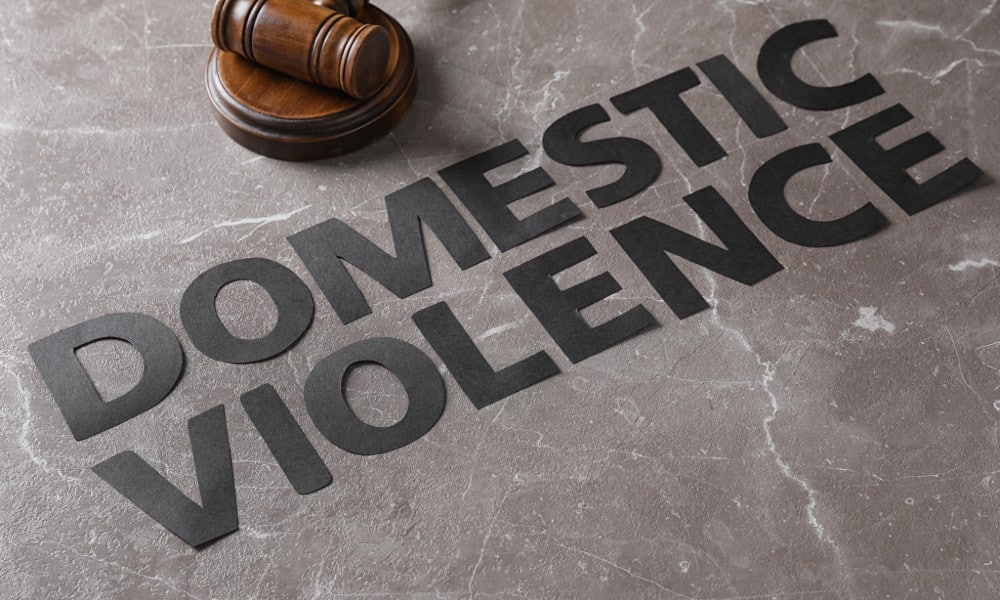
A domestic violence conviction can have serious consequences in Maine Assault, criminal threatening, and reckless conduct in domestic settings can all be classed as domestic violence in Maine—and criminal charges[...]

Defending those accused of domestic violence in Southern Maine Assault, criminal threatening, and reckless conduct in domestic settings can all be classed as domestic violence in Maine—and criminal charges can[...]

Sexual assault and sexual battery both refer to criminal offenses where a victim does not provide consent to sexual contact. This contact may or may not involve penetration, force, violence,[...]
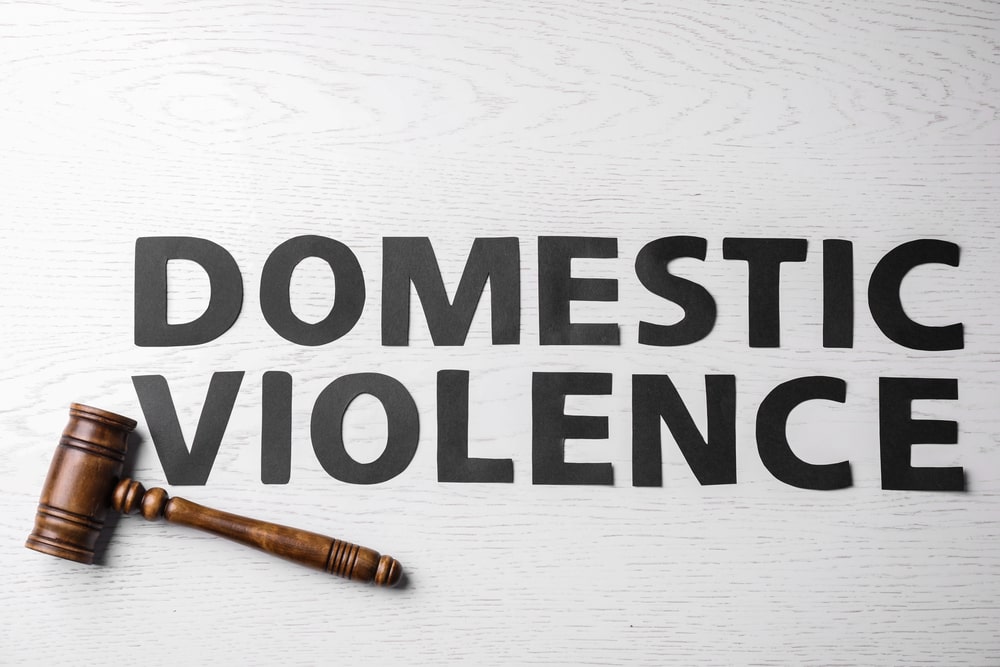
The domestic violence and stalking laws in Maine are currently being updated to address some shortcomings in the previous laws and to add clarity for both victims and accused parties[...]

In recent years, convictions for domestic violence offenses in Maine have increased as state prosecutors rigorously pursue cases. This has led to harsher penalties for offenders, which makes it even[...]
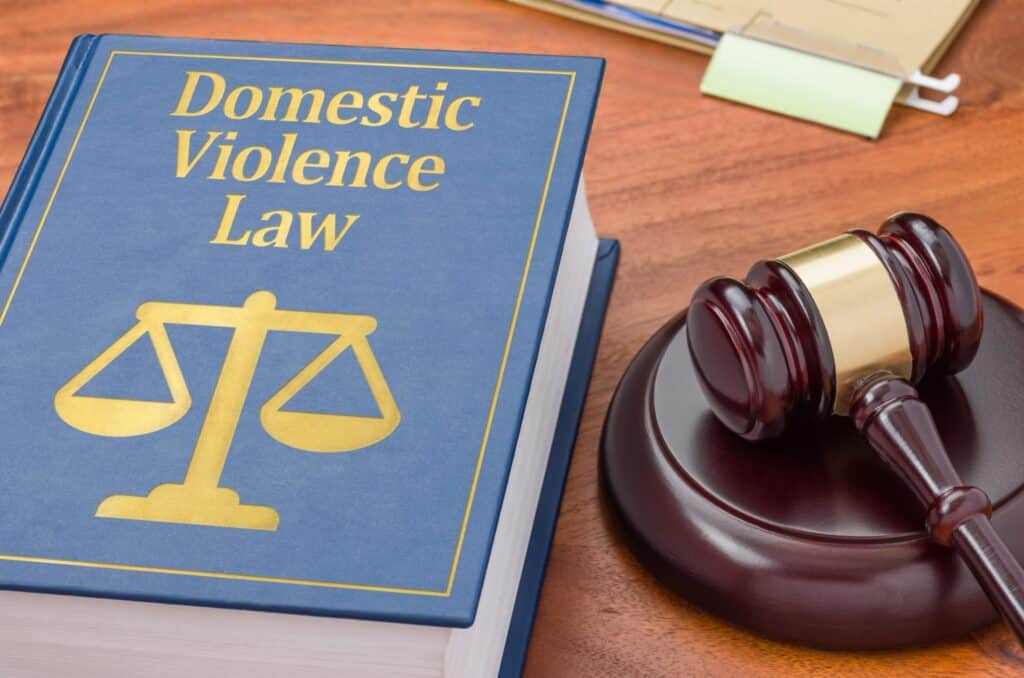
Crimes of domestic violence in the state of Maine can be confusing. This is because crimes of domestic violence are really just other crimes, like assault or battery, when those[...]

A protection from abuse order (PFA) can make it illegal for an individual to contact you or your children in the state of Maine. Filing a PFA is often a[...]
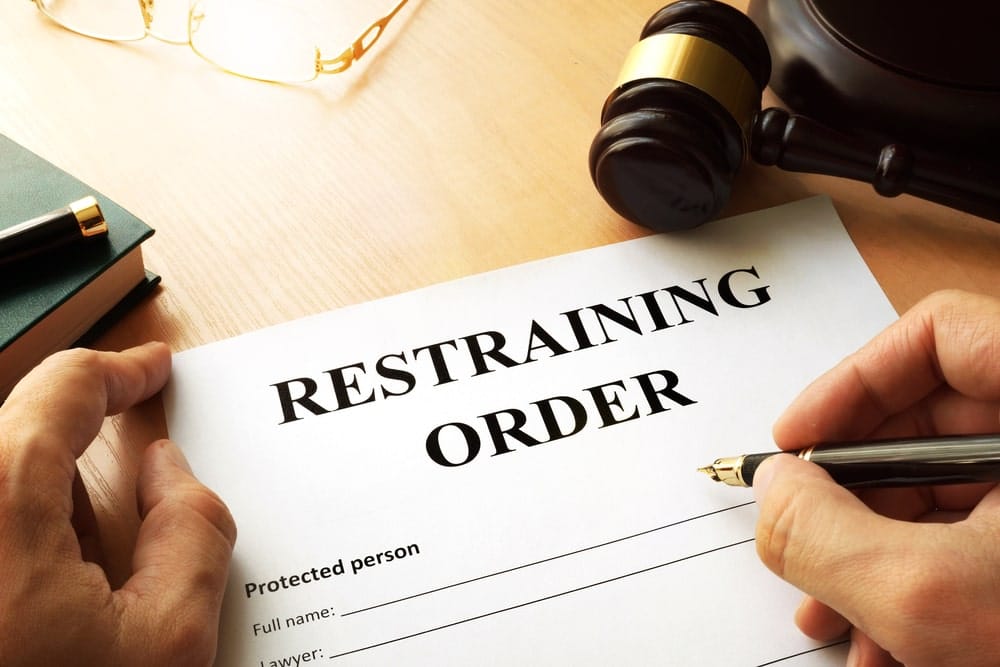
Protection from Abuse Orders (PFAs), such as restraining orders and no-contact orders, are frequently issued by the courts in domestic violence cases in Maine but are often confused. No contact[...]
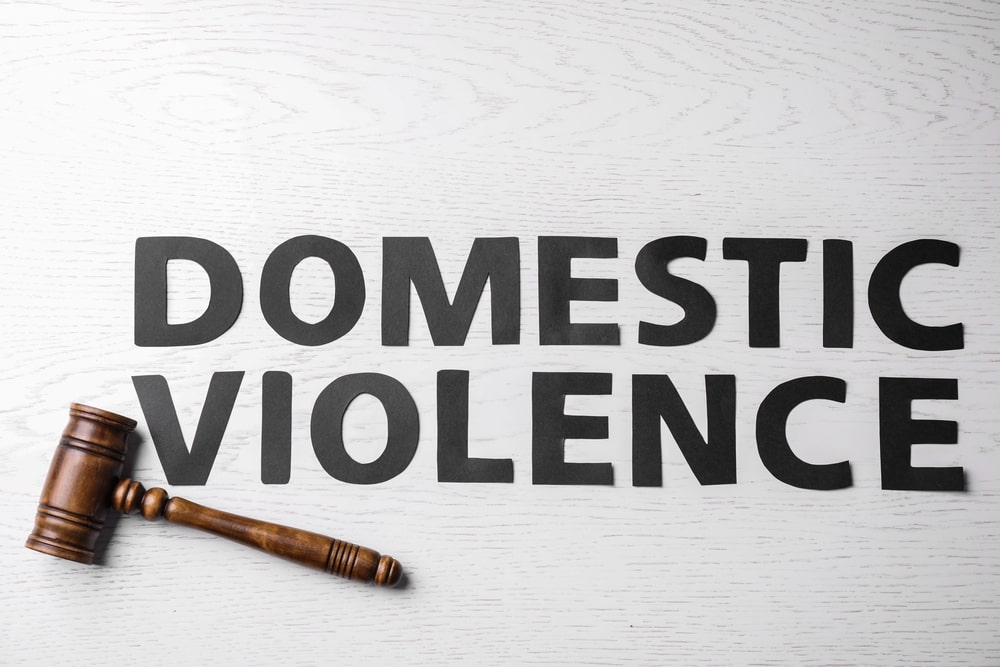
This article was updated March 6, 2025 Oftentimes what I see in these domestic violence situations is that a husband and wife get in a fight. They love each other[...]


